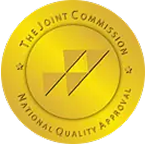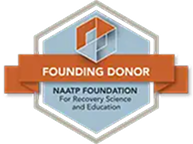The Language of Addiction: How We Talk About it Matters
After almost seven years in recovery from alcohol and drug addiction, the first image that comes to mind when I think of the word “addict,” is of a homeless, older, disheveled man in a dirty trench coat. He is alone, and stumbling slowly down a dark and wet street, gripping a bottle that is wrapped in a crumpled, brown paper bag.
I have come a long way since April 4, 2010. I went back to school and earned a master’s degree in social work. I have gained several new letters after my last name, including LCAS-A, or “Licensed Clinical Addiction Specialist – Associate.” I have traveled around the country to attend conferences on addiction. I’ve attended thousands of twelve step meetings and participated in recovery conventions and retreats. I’ve become gainfully employed in the addiction and recovery field. I have become a better mother, daughter, sister, and friend.
In my mind’s eye, however, I still see an older Caucasian male when I think of the word “alcoholic” or “addict.” I don’t think of a female… and I certainly do not think of someone who is in recovery from an alcohol or drug addiction. I can’t help but feel a little bit frustrated by this! Especially since, I have gained so much education on recovery and addiction. In fact, my final project for my master’s degree was a research study about the stigma of addiction.
I think part of my feelings of frustration are towards myself, because I think that I should know better than to automatically think of the man in the trench coat. I also know that this image of the “addict” did not come from nowhere. I must have witnessed messages or images at some point that helped to shape this image. I see a problem with stereotyping addicts and alcoholics within our society. It seems like the field of addiction has come so far over the past couple of decades, but we still have so far to go! I am curious as to where these thoughts and images emerged and what we can do to change them.
It is well known that those who attend Alcoholics Anonymous (AA) and Narcotics Anonymous meetings (NA) typically identify themselves as “alcoholics” and “addicts,” respectively. There are some who hesitate to join AA or NA simply because they do not want to label themselves as such. This is an issue discussed extensively in the substance abuse industry. Is it necessary to insist that newcomers label themselves so? After all, “the only requirement for membership is a desire to stop drinking (or using).” Nowhere within AA’s or NA’s traditions does it state: “You must call yourself ______ in order to participate in our meetings.”
It is true that early in the recovery process for many people it is the identification, the naming of the problem that can move people into a deeper level of acceptance about the disease they have so they can begin to focus on a solution. As an industry however, maybe we need to be using language consistent with treating an illness. This can mean saying we treat people who are suffering with a Substance Use Disorder. Perhaps it is not up to us to “label” people as addicts or alcoholics.
Many AA and NA members will explain that they identify themselves as an “addict” or “alcoholic” “out of respect for their fellowships. I am not suggesting that we stop calling ourselves addicts or alcoholics. I am suggesting that perhaps we can be less rigid with our terminology. I am suggesting looking at our recovery from a different perspective. There is a big conversation in the recovering community, and in many treatment circles across the country that maybe the stereotypes about alcoholics and addicts have remained so due to the very nature of our 12 step fellowships as “anonymous.” There is an accusation if you will, that many of us in recovery are ashamed of our identities as recovering people. The hope is that if more recovering people became more vocal about their recovery, especially to those who have never struggled with an addiction, that we could break this stereotype. Think of the possibilities of “going public” as a person in long-term recovery without having to, or even needing to say you are an AA or NA member. Your recovery becomes the focal point of something you have done and your anonymity remains protected if that is your choice. Think of the ramifications of being a picture of hope as a recovering person. The lobbying force we could be as a community is tremendous. The beacons we could be if more folks knew we were here!
Faces and Voices of Recovery, and other individuals and organizations within the recovery advocacy movement, offer training on recovery messaging. Anyone who has seen the film, “The Anonymous People” may have noticed that several advocates in the film identified themselves as “a person in long-term recovery.” I like this message because it allows people to share their recovery status without breaking their anonymous membership in any fellowship.
Now, I will say that I like to remind myself that I am an alcoholic and an addict because of my daily commitment to stay clean and sober. I feel a surge of pride when I think about where I was and how far I’ve come. I have participated in and taught the recovery messaging training, and I have experienced a tremendous reduction in shame about being an addict because of it.
I urge you to keep an open mind. A lot has changed since the fellowships of AA and NA were formed. Now, more than ever, I believe that all types of people need to know that there is a solution and there are people who have recovered from “a seemingly hopeless state of mind and body.”
Here are some words that we may want to reconsider:
- Abuse – This word tends to have a negative connotation, or indicate choice.
Instead: misuse, substance use, problem use - Addict, Alcoholic, Junkie, Crackhead, etc. – These words can be considered demeaning. There is no distinction between the person and the disorder. The terms indicate active use.
Instead: person in recovery, person in active addiction, person with substance use disorder, person experiencing a substance problem - Clean, Dirty – relates symptoms of addiction with filth
Instead: positive, negative, drug-free, actively using - Habit – denies medical nature of the disorder, suggests willpower as a solution
Instead: active addiction, substance use disorder, disease, illness
For more information, please visit:
Faces and Voices of Recovery
The National Alliance of Advocates for Buprenorphone Treatment (NAABT),
Substance Abuse and Mental Health Services Administration (SAMHSA)

Contributed by Primary Couselor, Missy Reed, MSW, LCSW-A, LCAS-A






